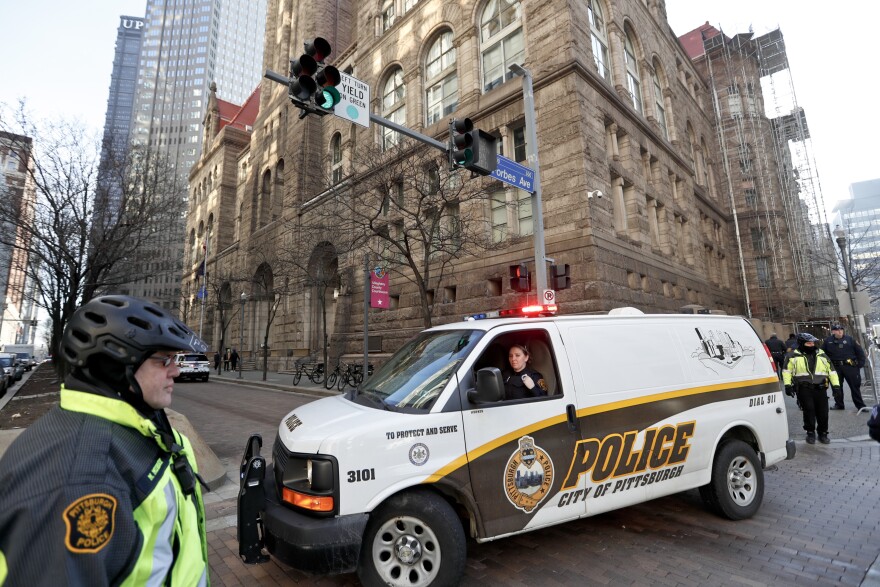Crime in Pittsburgh dropped by seven percent in the first quarter of 2019 compared to the same time last year, according to the city's Department of Public Safety. Violent crime decreased by 16 percent in that time frame, and by 29 percent over the last five years.
All categories of crime, as defined by Uniform Crime Reporting standards, dropped in this first quarter. That includes Part 1 violent crime, such as rape and aggravated assault and Part 1 property crime, like robbery by force or threat of force, burglary and arson. And lastly, Part 2 crime, which range from assaults that did not lead to injury to the victim, disorderly conduct, and driving under the influence.

Bureau of Police Commander Eric Holmes said there's been a concerted effort for police to engage more thoughtfully with Pittsburgh's communities, and he said he thinks that's a big reason why crime has dropped.
In 2017, the city of Pittsburgh launched a program to embed neighborhood resource officers within communities. These officers spend more time getting to know the public, and Holmes said it's had a positive effect.
"All of our officers in the city of Pittsburgh, we say are community outreach officers," he explained. "Because every interaction that they have with the community is an opportunity for positive connection.
Pittsburgh is one of six cities working with the National Initiative for Building Community Trust and Justice, an Obama-era project that works with police departments to make efforts to reduce bias and promote racial reconciliation.
Holmes said participating in the program has informed decision making for the sake of transparency. Quarterly crime reports will now be released publicly, and last month the bureau posted nearly all of its policies online.
"Transparency builds trust, and relationships can only be built at the speed of trust," Holmes said. "If we want the community to work with us and believe in us, they need to trust us."




